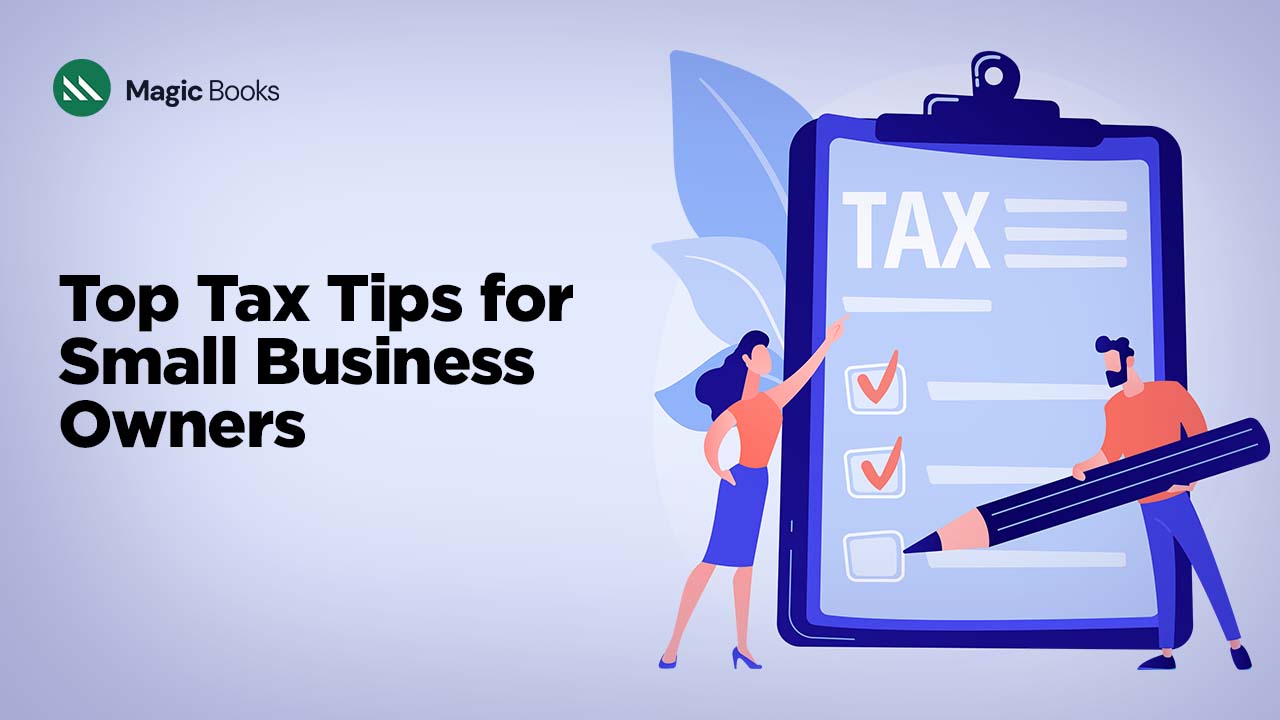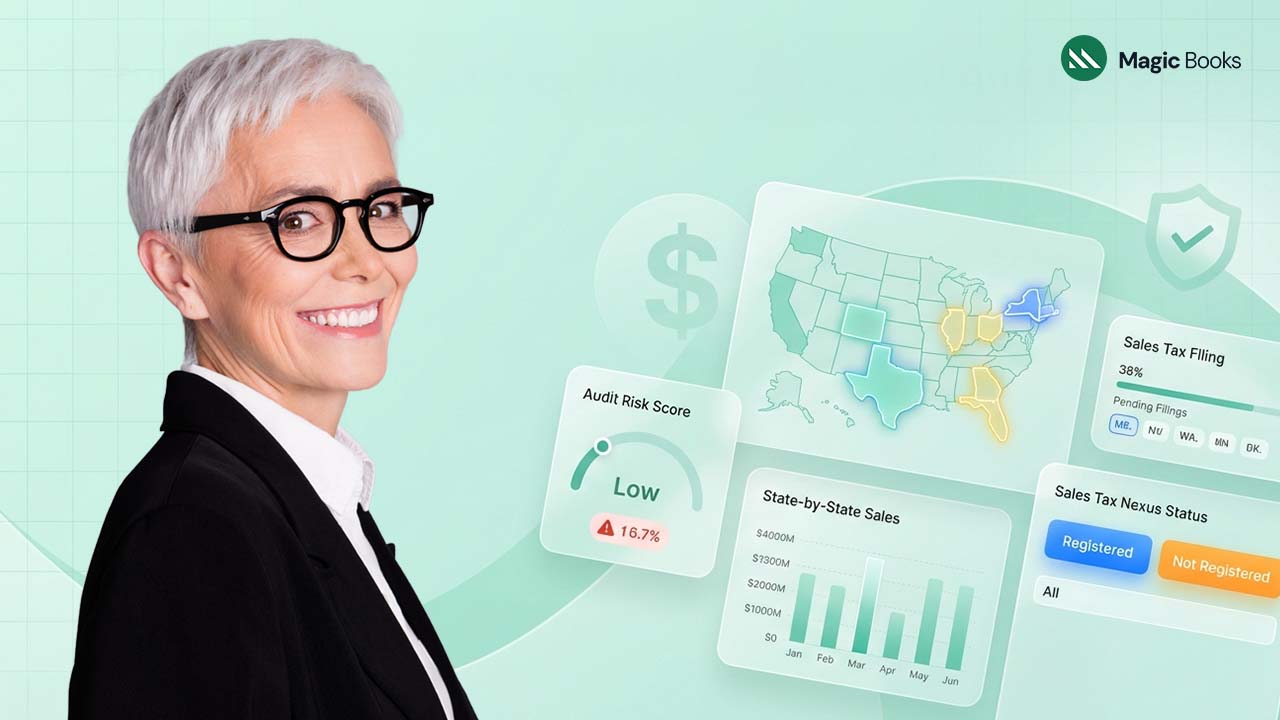Oh my god, I have to pay this much tax for my business?” No small business owner said in joy and excitement. They are always looking for ways to minimize their tax liability, which means evaluating the company’s current financial performance and changing the tax strategy accordingly. This will help the owners take advantage of favorable tax exemptions or set up a retirement plan for the employers and owners. At times and advantages like this, small businesses look for plenty of ways to save money and maximize the credits and deductions.
Whatever the situation may be, the year-end tax decisions can have a huge impact on the tax position for years to come. Before you go to your tax advisor, we will provide a few tips to keep them at the tip of your fingers.
What are Tax Deductions?
A tax deduction is a business cost that reduces the amount of tax you must pay. It is subtracted from your gross income to determine your taxable income. It is sometimes referred to as a tax write-off.
Making the most of all the available tax deductions can save businesses thousands of dollars of tax. Let us give you a small example:
Let’s say you are running a small B2B marketing agency that specializes in social media and digital advertisement for other businesses. Throughout the year, the company incurs many expenses, which include office rent, software subscriptions, travel for client meetings, and advertising costs. The good news is that these expenses qualify as a tax deduction.
Here is how it looks in practice:
Let’s say the company pays around $20K/year for office space, this expense is fully deductible as a business expense. The company pays $1200/Year for tools like Canva, Hootsite, Hubspot, etc. These expenses are deductible as they are essential for their operations. Now the business is growing and they need to travel to meet and expand their client base. For that, they spend $2k on travel to meet clients. This expense is deductible as it directly supports the business activities. It’s important for the firm to have an online presence to attract more clients. So, they might spend $5k on ads. Since this expenditure is for business growth, it qualifies as a tax deduction.
Here are some other tax deductions for small businesses:
1: Business Meals
2: Business Insurance
3: Contract Labour
4: Business use of car
5: Business Interest and Bank Fees
6: Depreciation
7: Education
8: Home office
9: Interest
10: Legal and Professional Fees
11: Moving Expenses
12: Salaries and benefits
13: Telephone and Internet Expenses
Remember: Some of the deductions might not be available for your sector of small business. So, It’s really important to consult with your tax advisor or CPA before claiming a deduction on the tax return. It’s good to have a clear picture or else you might end up spending on things thinking that it might be tax deductible.
Different Types of Business Taxes:
There are four general types of taxes that usually small businesses need to know. They are:
1: Excise
2:Employment
3:Income
4:Self-employment
Excise:
You might be subject to an excise tax if you manufacture or sell products like tobacco, alcohol, fuel, and firearms. They are often subject to excise taxes due to health, safety, or environmental concerns. It might also involve businesses that are involved in activities such as gambling, heavy trucking, or aviation which may need to pay exercise taxes to cover regulatory costs or infrastructure maintenance. Usage-based excise taxes can apply to equipment or facilities like commercial transportation, pipelines, or even some environmental taxes for pollution-producing machinery. It can also include services such as indoor tanning or heavy highway vehicle operations that incur excise taxes that fund industry-specific regulations or environmental programs.
Employment:
When your business hires employees, you are responsible for their retention, and mental well-being but in this case, certain employment taxes, which include both withholding taxes and direct contributions. These help fund essential programs such as Social Security, Medicare, and federal unemployment insurance, which supports both individual benefits and broader economic stability. Employees and Employers each contribute a portion of their wages(>6% for Social Security and >1% for Medicare). Employers are responsible for matching the employee’s contribution and submitting the full amount to the IRS. As an employer, you are required to hold back some of the federal income tax from employees’ paychecks based on their W-4 withholding allowances. The amount is submitted to the IRS regularly and contributes towards the employee’s annual income tax obligation. There are programs that support the unemployed folks out there. Employers alone pay FUTA taxes which support the federal unemployment insurance program. This really helps provide financial assistance to employees who lose their jobs.
Income:
Every business must file an annual income tax return with the IRS, but there are specific form required that vary based on the business structure. Please remember that partnerships are required to file an annual information return as their income, deductions, and other tax elements “pass through: to the individual partners who then report these items,s on their personal tax returns.
If you are a sole business owner, you need to file using Form 1040 with Schedule C, where business income and expenses are documented. Partnerships usually use the form 1065, which reports details on income, deductions, gains, and losses for all partners with each partner receiving a Schedule K-1 to include in their individual tax return.
Self Employment:
It is a mandatory social security and medicare tax for individuals who for work themselves. It’s important that self employed individuals contribute to the same social programs as traditional employees whose contributions are withheld by employers. This tax helps self-employed individuals build their coverage under the social security system which provides essential benefits including retirement, disability, survivor, and hospital insurance.
Equipment Deductions and Green Energy Tax Credits:
If you are in the market for new or used equipment, having it set up and ready for use before December 31 will provide an immediate tax deduction eligible this year. The deduction allows companies to write off equipment purchases against their tax burden, up to a maximum of $1,160,000 for the year on qualifying items. While this deduction is especially beneficial for smaller businesses, it begins to phase out at businesses that are spending in excess of $2.89 million on equipment. The other is bonus depreciation, which enables businesses to deduct a percentage of the costs of equipment in the year placed into service that will also be 80% for tax year 2023 then declining to 60% for tax year 2024.
Retirement savings plan
There are several retirement plan options for business owners: SIMPLE IRA, SEP IRA, 401(k), and profit-sharing. While all three have their own set of advantages, disadvantages, and setups they can offer tax deduction benefits for employee contributions, as well as the business owner. A plan will allow contributions to be tax-deductible and some plans may even be eligible for a tax credit that reduces the cost of implementing the plan. If one wants a deduction in this tax year, the plan needs to be established before the end of the year — even earlier for some types. To benefit from both of these, check the annual contribution limits and speak with a tax advisor.
Pass through Entity status:
Since 2017, the $10,000 state and local tax deduction limit has created elevated interest in state efforts to allow pass-through entities (PTEs), including S corporations, partnerships, or LLCs to pay PTE tax on behalf of owners. It is paid at the entity level and subsequently reduces its owner’s federal taxable income. By way of example, if an S corporation has $1 million of income and pays $60,000 in state taxes then the business could pass through only $940,000 for federal purposes thereby reducing the owners’ federal tax burden. It also causes a state income tax credit to be generated by them. Each state has its own regulations, so it really pays to check with a tax expert on what applies where — especially if the business is an S corporation.
Small Plan for Paying Taxes:
Understanding what the business tax picture will look like in advance allows you to better plan financially (and avoid a cash squeeze at tax time). While many companies are feeling the pinch of inflation, so plan ahead to avoid shocks. Strategy #1: Less business income this year means lower estimated taxes. You only need to pay 90% of this year’s estimated tax bill or 100% of last year’s to avoid penalties, so you can usually calculate your payments for the current year using the previous year’s tax numbers. Then, if cash flow is tight, you can keep hold of some cash a little longer and invest it instead as long as you know that the tax bill will be due at some point.
Tax Implications for Remote Workers:
The long-term solution, however, for a lot of businesses is to continue offering remote work — not just as a temporary pandemic measure anymore — and while having the potential to make it easier to keep employees and reach new labor pools, this also introduces some tax complications that need to be navigated carefully. Whether your team is just moving across a state line in the U.S., or to a different nation entirely, it’s essential to stay ahead of payroll tax and state filing requirements for compliance. However, it becomes complex if employees are relocating to different countries. So, let’s say your employee is transferring from New Jersey to India, it means you – the employer, need to be aware of payroll and taxation legislations in India for a foreign-based employer.
Deferring Expenses and Accelerating Income:
Tax planning can really help to level some of the peaks and valleys when business has been so-so this year but looks like it should be coming around next. Those on a cash basis for tax purposes may want to receive as much income as possible prior to December 31 — bill some clients a bit at an earlier date, and push some early payments. That way you pay tax on it (this year) at what could be a lower rate instead of next year, when you expect greater profits and likely higher rates. You might also want to postpone expenditures until January, so they apply against next year’s higher income — which will mean that those deductions are more precious.
Information is the BFF:
To help you learn about taxes, there are lots of Online Learning and Educational Products. The IRS Tax Calendar, for instance, notes all major tax deadlines affecting businesses. But if you decide to enlist the help of a pro, choose wisely and ensure that you can trust them with your personal information while hoping they know what they’re doing when filing your tax return. Regardless of who prepares your tax returns, you are responsible for the information contained in them.
Keeping Rock Solid Records:
We know keeping track of your records year-round is not the most exciting thing, but it will make tax time so much less painful! Come up with a system of somehow keeping receipts — whether that be having an actual filing system or using an app to scan and store them digitally. Whatever way you do it, make sure that it’s a system you are going to commit to. Believe me, when the tax season comes you will be happy to have everything started.
Well, there you have it folks. Taxes might not be the most fascinating part of running a business but always remember that their impact can create a ripple effect in your financial health. It’s really important to understand that tax laws keep changing and it gets really tricky to keep track of them as well, especially with new complexities of work-from-home, hybrid situations, and passing through entity benefits. With these tips at your fingertips, now you can navigate the tax season without getting drowned in high amounts of tax.



